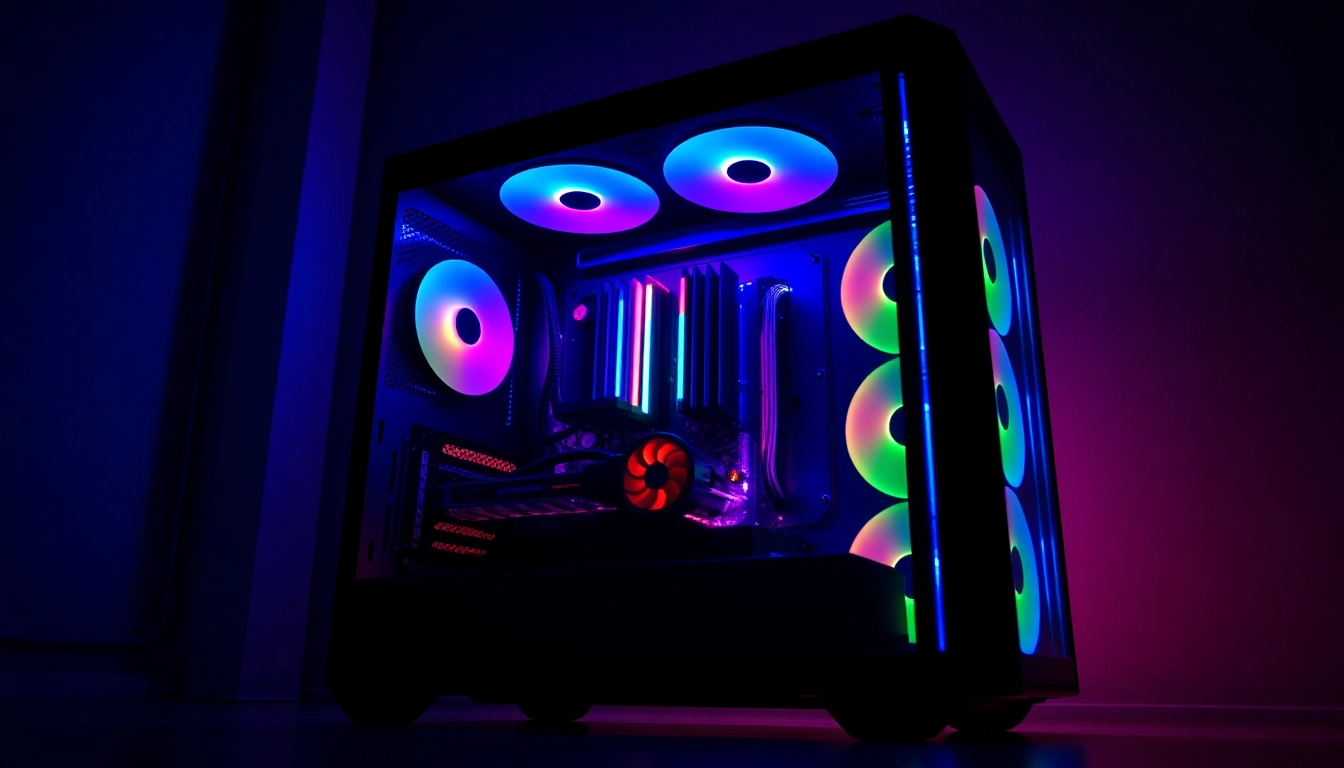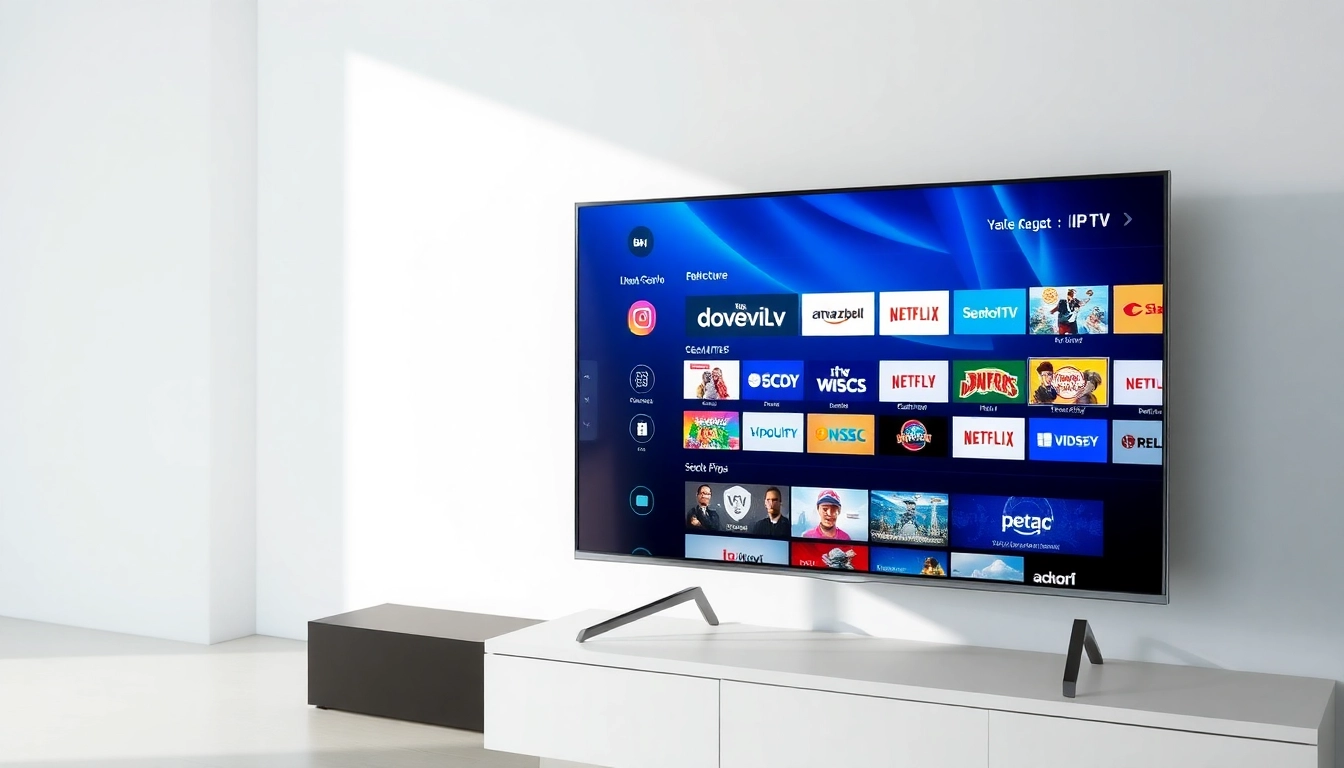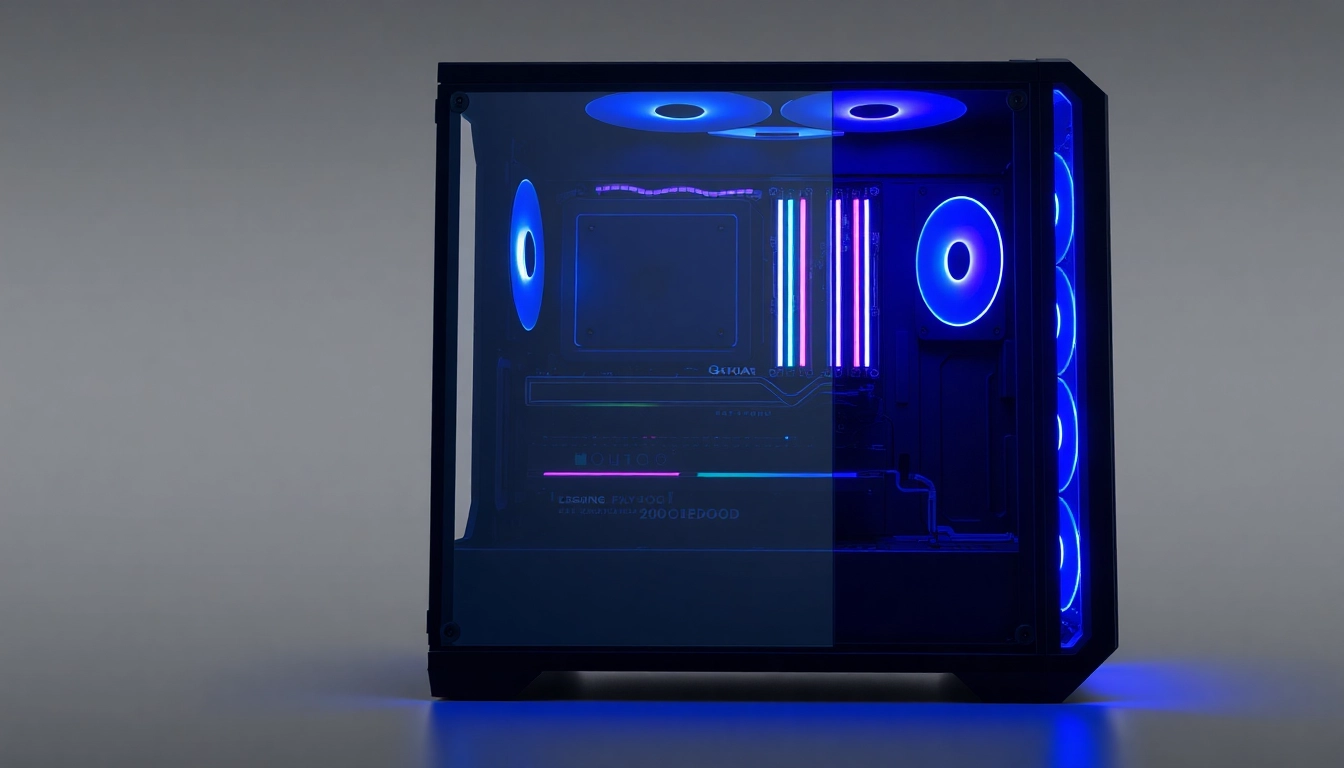Understanding Gaming PC Cases
A gaming PC case is more than just a protective shell for your valuable components; it is an essential element that can influence performance, aesthetics, and functionality. The right case can optimize airflow, enhance cooling, and ensure easy access to hardware, while giving your setup the sleek look you desire. This article will delve deep into the various aspects of gaming PC cases, offering insights, tips, and practical advice to help you make an informed decision when selecting your case. In this journey, we will cover everything from understanding what a gaming PC case is to exploring key features, customization options, and buying guides.
What Is a Gaming PC Case?
A gaming PC case serves as the enclosure for all your computer hardware, housing components like the motherboard, graphics card, power supply, and storage devices. It not only protects the internal components from dust, spills, and other external damage but also facilitates cooling and organization of wires. Gaming PC cases often come with additional features that enhance both functionality and visual appeal, making them distinctly different from standard desktop cases.
Types of Gaming PC Cases
Gaming PC cases can generally be divided into several categories based on their size and form factor:
- Full Tower Cases: These are large cases that can accommodate multiple graphics cards, extensive cooling solutions, and additional drives. They are ideal for gamers who plan to use high-end components or want room for future upgrades.
- Mid Tower Cases: A popular choice for most gamers, mid-tower cases strike a balance between size and expandability. They typically support standard ATX motherboards while providing sufficient room for cooling and storage devices.
- Mini Tower Cases: Compact and portable, mini-tower cases are suitable for small form factor (SFF) builds and are often chosen by gamers with limited space or who prefer lighter setups for LAN parties.
- Cube Cases: These are unique in design and offer a different aesthetic approach. They can provide good cooling options but may have limitations in terms of expandability.
- SFF (Small Form Factor) Cases: Designed for ultimate portability, these cases are compact and generally come with pre-built cooling solutions. They are ideal for users prioritizing space-saving designs.
Importance of Airflow in Gaming PC Cases
Effective airflow is critical for maintaining optimal operating temperatures for your components. Poor airflow can lead to overheating, which can cause hardware failures and reduce lifespan. A well-designed gaming PC case typically features:
- Intake and Exhaust Fans: Most gaming cases support multiple fan configurations, allowing for effective airflow management.
- Positive Air Pressure Systems: Many gaming PC cases utilize positive air pressure to keep dust out while ensuring cool air flows over critical components.
- Ventilation Grills and Mesh Panels: Integrated mesh or ventilated panels help facilitate airflow while preventing overheating.
Key Features of a Gaming PC Case
When selecting a gaming PC case, several features should be taken into consideration. Understanding these key features will significantly enhance your gaming experience and longevity of your hardware.
Size and Form Factor
The size and form factor directly impact the compatibility with your chosen components. As previously discussed, the case must support your motherboard size (ATX, micro-ATX, or mini-ITX) and accommodate your graphics card’s length and cooling solutions. Additionally, planning for future upgrades is crucial. Selecting a case that provides extra room will save you from having to replace it later.
Cooling Solutions
Besides fans, cooling solutions can vary from case to case. Consider features such as:
- Water Cooling Support: Some cases include mounts for radiators, facilitating liquid cooling systems that are often quieter and more efficient compared to air cooling.
- Airflow Design: Cases with a modular design can allow users to satisfy unique airflow requirements, such as optimized directional flow for high-performance builds.
Build Quality and Aesthetics
Build quality is vital in a gaming PC case. Cases constructed from high-quality materials, such as tempered glass, aluminum, and steel, not only provide durability but also enhance aesthetics. Look for features like:
- Tempered Glass Panels: These allow you to showcase your build while providing a sturdy protective layer against damage.
- RGB Lighting: Built-in RGB features can enhance the visual appeal and make your setup more immersive.
Choosing the Right Gaming PC Case for Your Build
Selecting the appropriate gaming PC case hinges on several personal preferences, requirements, and budget considerations. Here are some practical steps to guide you through the selection process:
Assessing Your Hardware Compatibility
Research your components, focusing on their dimensions and cooling requirements. It’s crucial to ensure that your selected gaming PC case can not only hold your current components but has the potential to accommodate future upgrades. Use online resources or community forums like gaming pc case discussions to help gauge which cases tend to work best with certain hardware combinations.
Budget Considerations
Your budget will heavily influence your choices. Gaming PC cases range from budget-friendly models under $50 to high-end cases exceeding $500. Make a list of desired features, and weigh them against your available budget. There are often excellent cases available at lower price points that don’t skimp on performance or aesthetics.
Brand Preferences and Reliability
Several manufacturers have earned a reputation in the gaming community for quality and reliability. Brands like Corsair, NZXT, and Thermaltake are often praised for their robust designs and customer support. Research various brands and read customer reviews to gain insights into the longevity of their products.
DIY Tips for Customizing Your Gaming PC Case
Once you’ve selected your gaming case and assembled your components, you can further enhance your build through customization. Here are some DIY tips to consider:
Adding RGB Lighting
RGB lighting can give your gaming setup a personalized touch. Many cases come with built-in RGB systems, but you can also purchase LED strips that fit within your case. Store-bought or DIY solutions are both viable options; ensure the components you purchase are compatible with your motherboard or RGB controller to achieve seamless synchronization.
Optimizing Cable Management
Effective cable management not only enhances aesthetic appeal but also improves airflow, aiding cooling performance. Utilize built-in channels or tie-down points in your case to route cables. Consider using custom-length cables, as they can reduce clutter significantly and improve airflow.
Implementing Effective Cooling Systems
Investing in high-quality fans and well-placed airflow systems can make a considerable difference in thermal management. Test different fan configurations and ensure your case has good airflow paths to optimize cooling performance. Pay attention to fan direction to prevent short-circuiting airflow.
Buying Guide for Gaming PC Cases
The final stage of your gaming PC case journey involves making that purchase. Here’s what you should keep in mind:
Where to Buy the Best Gaming PC Cases
Explore reputable retailers, both online and in-store, to find the best prices and latest models. Major shops include Newegg, Amazon, and Micro Center, which often provide excellent deals and customer reviews. Visiting brick-and-mortar locations also allows you to see the cases in person to assess size and build quality.
Price Range Analysis
Understanding the price range can help you make an informed decision. Budget cases offer essential features like airflow and compatibility, while premium options provide superior aesthetics, build quality, and extensive customizability. Set a price range and consider which features you will prioritize.
Reading Reviews and Recommendations
Before making a purchase, read reviews from trusted sources to learn about performance, build quality, and user experience. User reviews can provide valuable insight, especially regarding reliability and functionality. Take advantage of platforms like Reddit and tech forums to gather real-world insights from fellow gamers.



